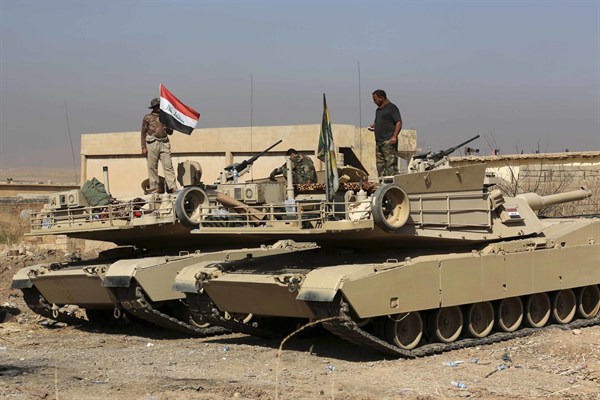Early Monday morning, Iraqi Prime Minister Haider al-Abadi announced the beginning of military operations to retake Mosul, two years after the so-called Islamic State seized the city. The anticipated recapture of the Sunni-majority city by a diverse coalition of forces holds the promise of improving some of Iraq’s most troubling trends. How the U.S. manages the complex politics of the coalition and how Abadi handles the Shiite players involved in the offensive will be critical to shaping the political aftermath of any eventual military success.
In the run-up to the campaign to retake Mosul, the U.S. provided additional troops to expand the training of Iraqi forces that will lead the assault. Washington has also sought to resolve disputes over which other forces will participate in the campaign. Retaking Mosul has been Abadi’s paramount goal since he took office in 2014, not long after Mosul was captured by the Islamic State, setting off a chain of events that led to Abadi being installed as prime minister.
The momentum to oust the Islamic State from the prized city has been building for weeks, as smaller towns have been wrenched one by one from the radical group’s grasp. The liberation of those towns seems to be putting paid to the Islamic State’s dreams of a caliphate, but it also serves as a cautionary tale—it has not always been a triumphant, uplifting event. The previously trapped populations have emerged traumatized and often ended up displaced, since basic infrastructure has been destroyed. Abuses of Sunni civilians by victorious Shiite militias have also greatly complicated how the liberated Sunni areas restore a sense of order. For their part, Iraqi government officials have been unsure of who to trust, wondering which Sunni inhabitants endured Islamic State occupation and which were—and perhaps still are—sympathetic to the group. After Falluja was returned to government control earlier this year, for example, civilians had to be vetted in camps before being permitted to return to their homes.

